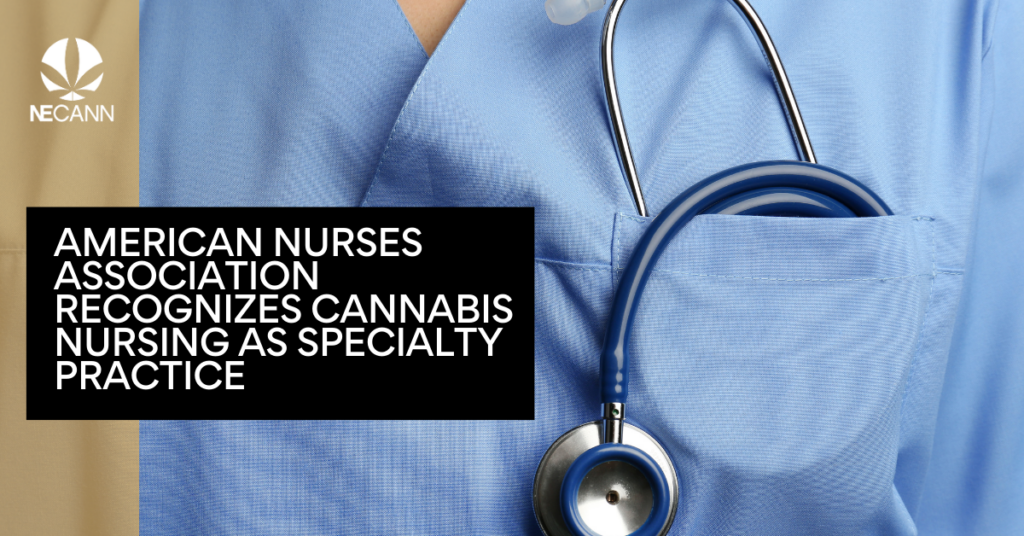The American Nurses Association (ANA) has officially recognized cannabis nursing as a specialty practice, highlighting the importance of nurses specializing in the therapeutic use of cannabis. With over 5 million members, the ANA represents the interests of nurses across the United States. This recognition follows the American Cannabis Nurses Association’s (ACNA) identification of cannabis nursing as a specialty practice dedicated to providing education and guidance on cannabis’s therapeutic use.
Cannabis Nursing’s Mission
The ACNA’s mission is to advance the field of cannabis nursing through advocacy, collaboration, education, research, and policy development. Established as a nonprofit organization in 2010, the ACNA not only focuses on advancing cannabis nursing but also aims to contribute to broader nursing practice and patient care.
Rachel Parmelee, MSN, RN, CNE, AHN-BC, President of ACNA, expressed her enthusiasm, stating, “We are deeply gratified by the groundbreaking establishment of cannabis nursing as an ANA-recognized nursing specialty. Nurses are the largest group of health professionals, providing an opportunity to change the health care paradigm and include diverse wellness modalities beyond traditional Western medicine.” She emphasized that cannabis nursing requires specialized knowledge and competencies to navigate care and address the stigma associated with medical cannabis use, ultimately benefiting patients nationwide.
ANA’s Support for Cannabis Therapies
The ANA has been supportive of providing safe access to therapeutic marijuana and related cannabinoids for over two decades. The association plays a pivotal role in reviewing specialty nursing scopes of practice, standards of practice, and requests for specialty recognition. In 2021, the ANA issued an official policy statement affirming that cannabis and cannabis derivatives are used to alleviate disease symptoms and side effects.
The ANA’s policy statement called for a scientific review of marijuana’s classification as a Schedule I drug under the Controlled Substances Act, suggesting that it be reclassified as a Schedule II drug to facilitate research into its medical benefits. Furthermore, it advocated for the development of prescribing standards, legal protection for patients using cannabis, and safeguards for healthcare practitioners discussing treatment alternatives involving marijuana.
The recognition of cannabis nursing as a specialty practice by the ANA aligns with the increasing awareness of cannabis’s therapeutic benefits among patients and the growing expertise of professionals in this field. Notably, Gonzaga University in Spokane, Washington, introduced cannabis certificate programs, including one focused on cannabis and healthcare, to bridge the educational gap and reduce the stigma surrounding cannabis. These initiatives reflect the evolving landscape of healthcare and the essential role of cannabis nursing in improving patient well-being.



